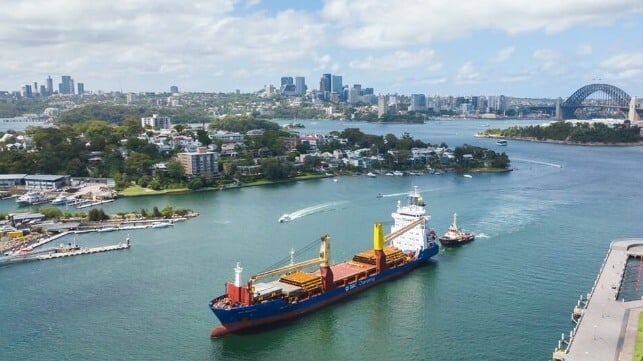Australia Suspends All Actions in Svitzer Labor Dispute for Six Months

Australia’s Fair Work Commission confirmed on Friday that it was blocking the planned lockout of tugboat crews by Svitzer, Maersk’s Australia subsidiary that operates tugs in 17 ports around the country. The commission, however, stopped short of the calls to end the nearly four-year dispute through arbitration and instead suspended the strike for six months.
The full panel, which Australia refers to as the “industrial umpire” issued its decision and an order saying that it was satisfied that Svitzer’s intended lockout “threatens to endanger the welfare of the Australian population,” and that it “threatens to cause significant damage to the Australian economy.” The decision came after hearing from Svitzer, counsels for the three unions representing Svitzer’s employees, a representative for Australia’s Minister of Employment and Workplace Relations, and ports and operators ranging from DP World and Patrick Stevedores to Port Botany, Kembla, Melbourne, and Qube Ports.
The government estimated that the lockout would have stopped container ships coming in or out of 17 ports, representing 65 percent of total imports and A$1.1 billion (US$730 million) worth of goods that pass through the ports every day. Qube Ports for example told the commission that 34 vessels were scheduled to arrive at the ports this weekend importing cars, steel, construction materials, fertilizer, and cement. Government officials had predicted the lockout would impact everything from clothing to meat, dairy, vegetables, phones, pharmaceuticals, fuel, coal, and machinery. The unions quite simply said Christmas would be ruined.
Responding to the order from the Fair Work Commission, Svitzer issued a statement saying “We welcome the certainty this brings to our customers and stakeholders.” They said that all shipping and port operations would continue while warning that there were some temporary disruptions.
In anticipation of the announcement of the decision from the commission, union employees at ports including Port Botany, Port Kembla, and the Port of Melbourne, staged protests. In at least one case they were reported to be blocking access roads to Port Botany. It was these types of disruptions, including an estimated 250 actions since October 20 that Svitzer cited in its move to lockout the crews.
Svitzer had asked the commission to officially terminate the protected industrial action saying that they were at a stalemate in the negotiations. While ordering both sides to stand down, the Fair Work Commission however made its order only effective till May 18, which raised the prospect for further actions in the long-running dispute between the unions and the tugboat company.
Saying that the three maritime unions have sought to negotiate and bargain in good faith for almost four years, Paddy Crumlin, National Secretary of the Maritime Union of Australia, said the management of Svitzer “have been diminished in the most humiliatingly public way possible… The Fair Work Commission has given them a significant signal today that this campaign of corporate cynicism and negligence could not be tolerated.”
The unions had offered the commission that they would suspend the industrial actions until after Christmas to allow parties to return to the negotiation process while Australian shipping movements could continue as normal during the period. The union argues that Svitzer’s demands would amount to a 47 percent pay cut and the company would impose work rule changes as well as changes to the union’s role in the recruiting process.
A spokesperson for Svitzer told the local media that it remains to be seen if there could be constructive talks or if today’s decision only delayed more of the same actions in the future.
The government’s Workplace Relations Minister Tony Burke welcomed the long suspension while noting that it was only a temporary solution. “We urge both sides to return to the bargaining table, negotiate in good faith and get this done,” he said while also again promoting the prospect of reform to give the commission greater power to arbitrate these types of disputes.
